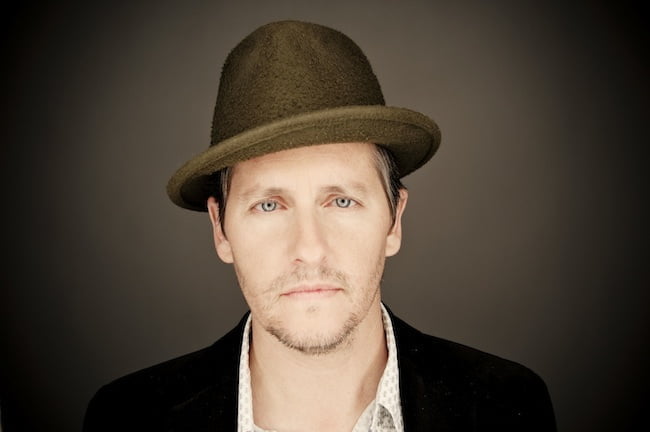
Josh Rouse: dressed up like Valencia
The Sodajerker boys talk to Josh Rouse, critically acclaimed purveyor of introspective Americana, and discover he’s a closet Cure fan
![]() hough wider commercial success has thus far eluded him, Josh Rouse has been a stalwart of the indie-folk and alt.country scene for the best part of the past two decades, starting with 1998’s Dressed Up Like Nebraska album. Since then, he’s recorded a further 10 studio albums, including Embers Of Time which came out this year. Along the way, he’s also divorced, remarried, had two kids and moved to Spain… which should give any songwriter plenty of material to work with!
hough wider commercial success has thus far eluded him, Josh Rouse has been a stalwart of the indie-folk and alt.country scene for the best part of the past two decades, starting with 1998’s Dressed Up Like Nebraska album. Since then, he’s recorded a further 10 studio albums, including Embers Of Time which came out this year. Along the way, he’s also divorced, remarried, had two kids and moved to Spain… which should give any songwriter plenty of material to work with!
Our friends at Sodajerker recently caught up with the 43-year-old singer-songwriter to discuss his new album, his songwriting technique and his plans for the future. You can read some of the best bits below…
Let’s start by talking about your new album, Embers Of Time. You’ve described it as “a surreal ex-pat therapy record” – what did you mean by that?
“Well, these days when you make a record, there’s so many people making music that it kind of has to be about something, rather than just good songs. So a lot of the subject matter on that album documents what goes on in my life… it comes out of gestalt therapy, which I still do. It’s based on trying to live in the moment, to be present. It’s hard for singer-songwriters to do that: it’s hard to be present because you’re always thinking of a song you’re working on, or a gig you’re going to play. You kind of live in the future, to a degree. So gestalt therapy is definitely helpful in that respect. Mindfulness, is another word for it.”
There’s a lovely vibe to the new album. What was the recording process like: was it quite a laidback affair?
“Yeah, I have a studio here in Valencia that some old 80s group used to have. We went in and tore some of the stuff off the walls and it’s a great little man cave to have and to hang out with musicians and record. But I also went to Nashville and recorded some stuff with some friends there, there’s a guy named Brad Jones who helped out with the arrangments and mixing.”
“I’m a real fan of 1950s, two-and-a-half minute songs”
There’s a real sense of clarity to the chords and melodies in your songs. Do you strive to distill your ideas down so there are no wasted moments?
“Yeah, it’s a weird thing but I’m a real fan of 1950s, two-and-a-half minute songs. You have to be able to play a song on the guitar for me to say, ‘This is a good song’. I have songs that don’t depend on arrangements and counter-melodies and all those kind of things… but I’ve also had songs where if I sat down and played them just on an acoustic guitar, you’d feel you were missing something. The songs I like best are where the melody’s clear and there’s no wasted time.”
This is your 11th album… do you find it’s easier to go from the initial seeds of an idea to a finished song these days?
“I became a father five years ago – twice – and that’s really changed the way I work. Before, I was just floating around and working on songs whenever I wanted to. Then all of sudden I had to be responsible and think about things in a different way. So I have to block out time and set aside some hours to work on song ideas, which is tough because, for me, you can’t block out time for creativity. The good stuff comes when you’re not expecting it.”
You play harmonica as well as guitar… have you ever written a song on the harmonica, or on any other instuments?
“I’ve written some songs on the ukelele, and a few on piano, but mainly I just pick up a guitar that’s lying around. I’ve written some stuff with tracks that people have sent me, and that’s always interesting. I should probably do it more, but the guitar’s always sitting there! Different tunings help me sometimes.”

Do you have an archive of bits and pieces of songs you haven’t used that you can call on, or are you generally starting from scratch with every song?
“Pretty much from scratch. Lately I’ve been trying to finish all my ideas… even if it’s something where I think, ‘I don’t know about this,’ sometimes when I finish the song it’s really good. Or sometimes when you play it for someone else they’ll go ‘Wow, that’s really good’ where I was thinking it was a bit of a throwaway song… one for the B-sides folder! So generally I try to finish my ideas, but every once in a while an idea hangs around for a few years. With the song Neil Young, I had the music for that song for 15 years before finishing it off.”
You’ve written songs about Neil Young and Marvin Gaye… what other songwriters have influenced you?
“When I started, there was a band in Nashville called Lambchop, and their singer Kurt Wagner inspired me philosophically, but he also got me into using vibes on my music, which was unusual at that time. Acoustic guitar, light electric guitar… and then putting vibraphone on there, and some pedal steel. Which is kind of a country-politan thing. And some of those uptown chords, those major seven chords which some people are afraid to use.
“Musically, Lambchop were an influence”
“So musically, Lambchop were an influence. But they were peers. There’s no one person that I always thought ‘I want to be Bob Dylan’ or whoever. I enjoyed a lot of things: Robert Smith of The Cure, Morrissey, Carole King’s Tapestry which I think was the first record I had as a kid.”
And you namecheck Carole King on the song 1972. Is that where that comes from?
“Yeah, I love that record. Just thinking about where I used to live, and having that album on an eight-track cassette, and sticking it in the eight-track player with its cover art all faded… nice.”
Your lyrical style is quite introspective. Do you tend to write lyrics freeform, in a journal or something, or do you generally write music and then craft the words to fit?
“Erm… both. I don’t think there’s one certain way I do it, it just depends. I do write things down and then they end up in songs, but more and more I find, as my kids are getting a bit older and I have a bit more time, I can really sit down and get focused and, y’know, write a song there and then.”

Do you have any particular philosophy about chord sequences? Do you tend to stick to particular chords or keys that you feel comfortable with, or do you like to experiement with new shapes? I think you said you try different tunings…
“Yeah, I do different tunings, and I work in E flat a lot, which is uncomfortable for everyone. A lot of black keys, sometimes. But more and more – I was just having this discussion with someone – I just want to do everything in C! I just want to do this chord shape right here, all the time. C, G and F.
“The good thing about songwriting is that, although promoting yourself and being part of a music scene is kind of a young man’s game, you can really get better at songwriting. With age, you can get better at crafting songs. So that’s what I’ve been trying to do lately, keep things really simple.”
“The older I get, the more joy I get out of touring”
You touched on co-writing earlier… we wanted to talk about Quiet Town, which was co-written. We love the Nilsson-esque fingerpicking. What did you have in mind when you wrote that, and who did what when you wrote it?
“Well, I said, ‘I want to do a song like Everybody’s Talkin’!’ So my friend Daniel Tashian started playing something that was kind of similar. And at that time I’d just moved to Spain, so the phrase ‘quiet town’ came up… and we wrote it and demo’d it right there in his living room. I still have the tape! It was a cool song because later, it was Brad Jones’s idea to put a double bridge in there, the kind of minor part that it goes to before and after the whistling solo.
“But Daniel and I write quite a bit together, he’s fantastic because he works for a publishing company in Nashville and writing songs for other people is his day job. So he’s the guy I go to to pick up new tricks!”
What’s your favourite part of the music-making process? Is it the writing, or would you say you prefer recording or touring?
“I like it all. It used to be more about the creative process, the writing and recording… and then having to go out and play it. The older I get, the more I tour, the more joy I get out of touring. In my 30s I said no to lots of tours but now that less opportunities come my way, I really appreciate still being able to travel around the world and play my songs for people.”

Internationally renowned songwriters are queuing up to be interviewed by Sodajerker, who now have over 60 episodes under their belt. Established in 2012 by Liverpudlian songwriting duo Simon Barber and Brian O’Connor, the Sodajerker On Songwriting podcast has welcomed guests including Neil Sedaka, Johnny Marr, Ben Folds Five, Billy Bragg, Richard M. Sherman, Neil Finn, Suzanne Vega, Jimmy Webb, Rufus Wainwright, KT Tunstall and many more.
To find out more about Sodajerker and their work, or to download their podcasts – including the full 45-minute interview with Josh Rouse – go to www.sodajerker.com. You can also connect with them on Facebook or Twitter, or download the podcasts from iTunes.

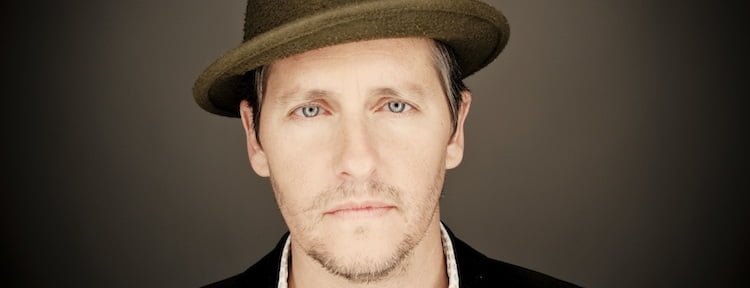
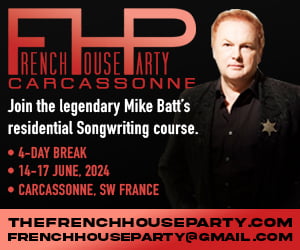





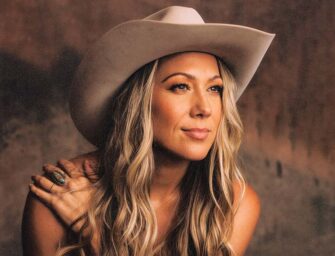
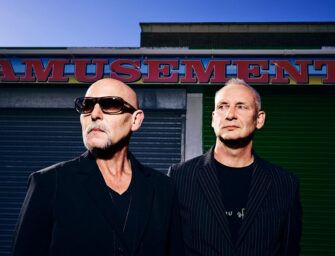
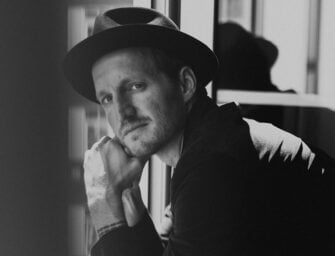

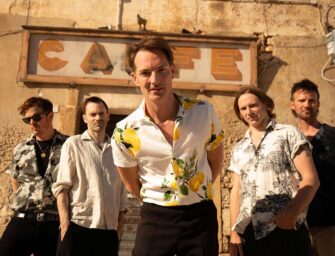




















Related Articles